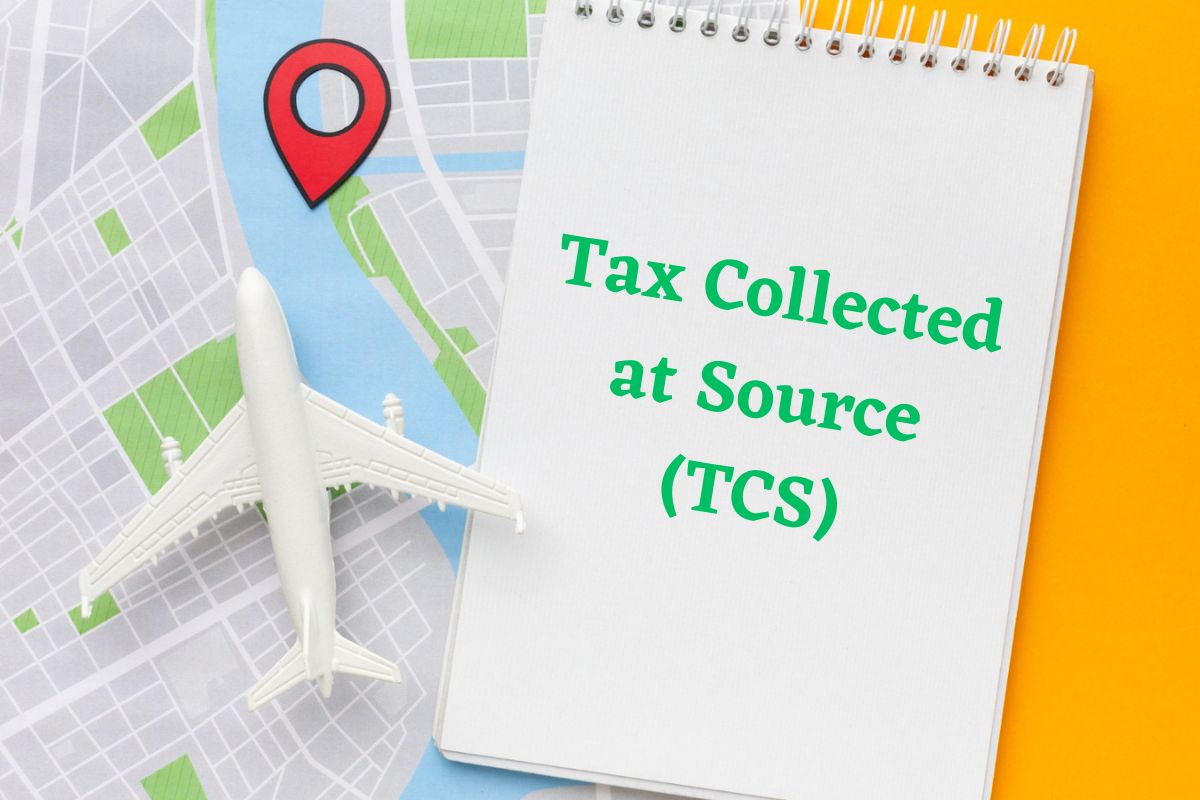How TCS will impact international students and foreign travel from October 1

How TCS will impact international students and foreign travel from October 1
Effective from October 1, 2023, new rules pertaining to Tax Collection at Source (TCS) on the Liberalised Remittance Scheme (LRS) and on the purchase of overseas tour program packages will come into effect. These rules include the restoration of a threshold of ₹7 lakhs per financial year per individual for TCS on all categories of LRS payments, regardless of the purpose or mode of payment.
Here are the key points regarding these new rules:
- Threshold Restoration: The restoration of a threshold of ₹7 lakhs per financial year per individual means that TCS will be applicable on LRS payments exceeding this threshold. In other words, TCS will be collected when the LRS payments made by an individual for any purpose (such as foreign education, travel, investment, etc.) exceed ₹7 lakhs in a financial year.
- All Categories of LRS Payments: The threshold restoration applies to all categories of LRS payments. This means that regardless of the specific purpose for which an individual is using the Liberalised Remittance Scheme, TCS will be applicable on payments exceeding ₹7 lakhs.
- Modes of Payment: The TCS will be applicable on LRS payments made through all modes of payment. This includes payments made through various channels, such as bank transfers, credit cards, and other forms of payment.
These new rules are intended to regulate and collect taxes on certain financial transactions, ensuring that individuals who make significant outward remittances through the LRS scheme are subject to TCS. It’s important for individuals and businesses to be aware of these rules and thresholds to ensure compliance with tax regulations and reporting requirements when making overseas payments and purchases of tour packages.
In an exclusive interview, Virender Bisht, Co-founder & CTO at Niyo, can provide valuable insights and information on the new Tax Collection at Source (TCS) rate and how it will impact financing education and buying international travel packages. Here are some key points that he may address:
- Overview of TCS Changes: Bisht can explain the recent changes in the TCS rate and provide an overview of how it affects individuals and businesses making payments under the Liberalised Remittance Scheme (LRS).
- Impact on Education Financing: He can discuss how the revised TCS rate impacts individuals who are financing education abroad, including the additional tax implications and how students and their families should navigate these changes.
- Impact on International Travel Packages: Bisht can also explain how the new TCS rate affects the purchase of international travel packages, including tour programs. He can address any additional costs that travelers may incur and provide tips on managing these expenses.
- Compliance and Reporting: It’s important to discuss the compliance and reporting requirements associated with the new TCS rate. Bisht can provide guidance on how individuals and businesses can ensure they are in compliance with tax regulations when making overseas payments.
- Alternative Financial Solutions: In the interview, Bisht may also discuss alternative financial solutions or strategies that individuals and businesses can consider to mitigate the impact of the TCS changes while achieving their financial goals.
- Future Implications: He can touch on the potential future implications of these tax changes and how they may impact international transactions and remittances in the long term.

As per the Central government’s notification dated June 30, 2023, regarding remittances for education, the following expenses are included:
- Remittance for Travel: This includes remittances for purchasing tickets for students to travel between India and the country of their education.
- Tuition and Other Fees: Remittances for payment of tuition fees and other related fees to the educational institute are also covered.
- Day-to-Day Expenses: Remittances for day-to-day expenses, such as food, accommodation, local transport, health services, and other living expenses, are included.
It’s important to note that regular remittances by students for education purposes are not expected to have a significant impact post the October 1 TCS changes. However, making multiple remittances in a year to cover day-to-day expenses can be cumbersome and potentially expensive due to the Tax Collection at Source (TCS) requirements.
To address this issue, students often opt for Indian international cards like the Niyo Global card. These cards typically have no TCS applicable up to an aggregate of Rs. 7 lakhs in a financial year, which aligns with the threshold set by the government. Additionally, these cards may come with the benefit of zero forex markup charges, making them a convenient and cost-effective option for managing day-to-day expenses while studying abroad.
This information underscores the importance of financial planning and choosing the right payment methods to manage expenses effectively, especially when studying abroad, to minimize the impact of tax-related changes.
Pursuing international education can indeed be a costly endeavor, with various expenses like tuition fees, accommodation, and day-to-day expenses. Many of these payments are made on international portals, which often come with additional forex fees. To help students manage these expenses more efficiently, one strategy is to utilize zero forex international cards.
Here are the advantages of using such cards:
- No Forex Markup Charges: Zero forex international cards typically do not impose foreign exchange markup charges when making transactions in foreign currencies. This means students can make payments for their education and living expenses without incurring additional fees for currency conversion.
- TCS Threshold Exemption: These cards often come with an exemption from Tax Collection at Source (TCS) up to an aggregate of Rs. 7 lakhs in a financial year. This can be especially beneficial for students who may need to make multiple transactions for various expenses throughout the year.
- Convenience: International cards are widely accepted and can be used for various types of transactions, including online payments, tuition fees, accommodation booking, and daily expenses. They offer convenience and flexibility for managing finances abroad.
- Budgeting and Tracking: Many international cards provide online account management tools, allowing students to track their expenses, set budgets, and monitor their financial health while studying abroad.
- Security: International cards often come with security features such as chip and PIN technology and fraud protection, providing peace of mind to students and their families.
- Ease of Reload: Some cards allow for easy reloading of funds from India, ensuring that students have access to the necessary funds when needed.
Overall, zero forex international cards can be a practical and cost-effective solution for students pursuing international education. They help reduce the financial burden associated with forex fees and TCS requirements, making it easier for students to manage their expenses while studying abroad. However, it’s essential for students to research and compare different card options to find the one that best suits their needs and offers the most favorable terms and benefits.
For parents who are remitting money to their children studying abroad, it’s essential to have a clear understanding of what falls under Tax Collection at Source (TCS) and follow proper procedures. Here are some important tips:
- Understand TCS Applicability: Be aware of the specific transactions that fall under TCS regulations, such as certain types of foreign remittances. Understanding when TCS applies will help you plan and prepare accordingly.
- Track Transactions: Keep a record of all your financial transactions related to remittances made to your children studying abroad. This includes tuition fees, living expenses, and any other payments. Proper record-keeping is crucial for compliance and tax reporting.
- Use Correct LRS Code: When making remittances, ensure that you use the correct Liberalised Remittance Scheme (LRS) code that corresponds to the purpose of the payment. Accurate categorization is important for tax compliance.
- Maintain Documentation: Keep all relevant documents and forms related to your financial transactions. This may include bank statements, receipts, invoices, and any other paperwork that supports your remittances.
- File TCS in ITR: If required, make sure to include TCS information in your Income Tax Return (ITR) filing. Comply with the tax reporting requirements and provide accurate details regarding your foreign remittances.
- Stay Informed: Stay updated on any changes in tax regulations, including TCS rules and thresholds. Being informed will help you make informed financial decisions and ensure compliance with tax laws.
- Consult a Tax Advisor: If you have questions or concerns about TCS, foreign remittances, or tax compliance, consider consulting a tax advisor or financial expert who can provide guidance and assistance tailored to your specific situation.
By following these tips and staying vigilant about TCS regulations, parents can effectively manage their financial transactions when remitting money to their children studying abroad. Proper record-keeping and compliance are key to ensuring a smooth and legally sound financial process.
For both students and leisure travelers, opting for international cards with a zero forex markup feature can be an excellent financial choice. Here’s why these cards are beneficial:
- Savings on Forex Transactions: Zero forex markup cards do not charge additional fees for currency conversion when making international transactions. This means you can save 3-5% on every international transaction, which can add up to substantial savings over time.
- ATM Withdrawal Convenience: These cards also typically offer favorable terms for ATM withdrawals abroad, allowing you to access cash conveniently while minimizing withdrawal charges.
- Simplified Expense Management: Using a single international card with a higher limit can simplify expense management while abroad. You can track expenses easily, avoid carrying large amounts of cash, and benefit from the card’s security features.
- Cumulative Limit for Family Travel: As mentioned, if two PAN card holders from the same family travel together, they can split expenses and take advantage of a cumulative limit of Rs. 14 lakhs on which Tax Collection at Source (TCS) will not be applicable. This can reduce the tax burden for families traveling together.
- Security and Convenience: International cards often come with enhanced security features, including chip and PIN technology, fraud protection, and the ability to block or replace a lost or stolen card quickly. They are widely accepted globally, making them a convenient payment method.
- Ease of Use: International cards are easy to use for a variety of transactions, including hotel bookings, dining, shopping, and transportation. They eliminate the need for carrying large sums of cash.

It’s important to research and compare different international card options to find the one that best suits your needs and offers the most favorable terms, such as no forex markup and competitive foreign exchange rates. By doing so, you can optimize your travel finances and enjoy a seamless and cost-effective international travel experience.




